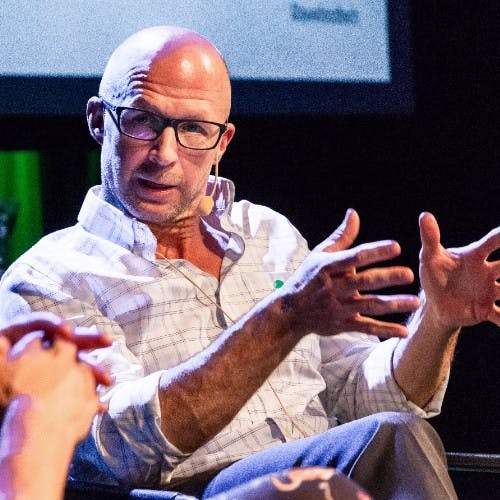Humanity produces enough food to feed 10 billion people — 2.2 billion more people than are alive today — but the way food is distributed is inefficient, what people are eating is often unnutritious, and how food is produced is harming the ecosystems on which humans depend for sustenance.
To continue listening, subscribe to Eco‑Business.
There's something for everyone. We offer a range of subscription plans.
- Access our stories and receive our Insights Weekly newsletter with the free EB Member plan.
- Unlock unlimited access to our content and archive with EB Circle.
- Publish your content with EB Premium.
Food production is the single biggest driver of biodiversity loss, and accounts for 27 per cent of the world’s greenhouse gas emissions. And unhealthy diets are more likely to kill people than unsafe sex, and alcohol, drug and tobacco use combined; nearly 700 million go hungry, while almost 2 billion are obese or overweight.
Fixing the food system could help the world achieve many if not all of the Sustainable Development Goals, and a good place to start is with our own diet, according to a new report from the World Wide Fund for Nature (WWF), called Bending the Curve: The Restorative Power of Planet-Based Diets. The report looks at how what people eat in different countries affects the planet in different ways, and how changing our diet could reverse the damage that the food system is doing to human health and the environment.
Switching to a plant-based diet could reduce food-based greenhouse gas emissions by at least 30 per cent, wildlife loss by up to 46 per cent, and agricultural land-use by at least 41 per cent, according to the report. But the implications of diet change markedly by country. Shifting to healthier, balanced diets would lead to a reduction in emissions in Sweden due to a fall in animal-based foods, but an increase in emissions in Malawi, due to an increase in overall consumption, particularly fruit and vegetables, fish and dairy.

Brent Loken, global food lead scientist
Joining the Eco-Business Podcast to talk about the report is its lead author, Brent Loken, WWF’s Stockholm-based global food lead scientist. A flexitarian who holds a doctorate in resource and environmental management, Loken is an authority on how to change the food system for the good of human health and the planet. He recently gave a TedTalk on how to create the perfect farm — a nature-positive food system.
Tune in as we talk about:
- Is being flexible the best way to eat?
- Why changing diets isn’t that hard
- Making healthy eating sexy
- Why do governments recommend unhealthy food?
- Will feeding the hungry always mean biodiversity loss?
- Not everyone needs to be vegan
- The social stigma of food













